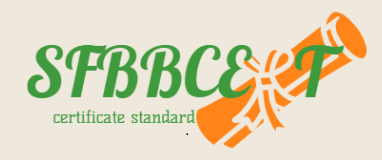
Food Allergy: Threat or Opportunity?
Today, food allergies and food safety concerns are increasing at an alarming rate across the world. This issue presents new challenges for food businesses. While it may seem like a threat to many, it also offers an opportunity for growth, improvement, and attracting new customers by building trust.
Statistical data show that in recent years, food allergy-related deaths have increased within the food industry. In 2019, around 150 food allergy-related deaths were reported in the U.S. Additionally, between 2001 and 2010, deaths caused by food allergies in restaurants increased by 50%. On the other hand, growing public awareness, the severity of allergic reactions, and the efforts of consumer rights groups have led to a rise in complaints against food businesses. In 2020, approximately 3,000 complaints were filed with the U.S. Food and Drug Administration (FDA) for violations of food allergy regulations, and 1,000 complaints were reported to the Canadian Food Inspection Agency in 2019.
What Is the Responsibility of Food Businesses to Ensure Food Safety?
Many countries, including Iran, have enacted laws requiring food businesses to provide allergy-related information to customers. Food businesses are obligated to follow hygiene and food safety standards to reduce the risk of allergy-related deaths.
For example, as a food business owner, you are required to provide customers with information about allergenic ingredients used in your food. According to food safety regulations, if your products contain any of the 14 recognized allergens, you must clearly inform consumers.
These allergens are among the most common and severe:
Solutions for Providing Allergen Information
-
Labeling: One of the most effective methods for sharing allergen information is using clear and legible labels on menus and food packaging. These labels must specify allergenic ingredients.
-
Staff Training: Employees must be trained on food allergies and how to provide accurate information to customers. They should be able to answer questions confidently and correctly.
-
Online Disclosure: Food businesses can also share allergen information via their website or mobile apps to ensure wider accessibility.
Benefits of Allergen Transparency
-
Increased Customer Satisfaction: Giving customers clear information about allergens builds trust and leads to long-term loyalty.
-
Preventing Allergic Reactions: Educated consumers are less likely to suffer allergic incidents, which helps protect their health.
-
Positive Reputation: Businesses that demonstrate responsibility and hygiene awareness are more likely to earn a good reputation and benefit from word-of-mouth marketing.
What to Do in an Emergency Allergy Situation
If a customer in your restaurant experiences an allergic reaction, immediate and appropriate action is essential. Here’s what to do:
-
Assess the Situation: Talk to the person and ask about symptoms. If they show severe signs (breathing difficulty, throat swelling, rash), call emergency services immediately. For milder symptoms (itching, hives), proceed with supportive care.
-
Assist the Person: If they have an epinephrine auto-injector (EpiPen), help them use it. If not, provide an antihistamine and water, and keep them comfortable and calm.
-
Coordinate with Staff: Ensure your team prevents others from entering the scene, call for medical help, and reassure other customers.
How SFBBCERT Helps Prevent and Manage Food Allergy Risks
SFBBCERT offers expert consulting, employee training on allergies, and guidance on transparent food labeling. This helps align your food business with food hygiene standards and improves overall performance.
By implementing the SFBB (Safer Food, Better Business) standards in restaurants and food businesses, you not only improve food quality and hygiene but also build customer trust. Besides general food safety, managing allergens accurately in menus is critically important.
Providing accurate allergen information can prevent dangerous allergic reactions and ensure customer health and safety.
All restaurant staff should be trained on allergy protocols and food safety standards. With monitoring systems like SFBBCERT, businesses gain better oversight of food hygiene and reduce risks. Allergen control and customer communication are also crucial for earning recognized food safety certifications.
By following these practices, you not only increase customer satisfaction but also build long-term brand credibility.
Today’s customers demand safe, hygienic food. By complying with food safety standards, you protect their health and win their trust and loyalty.
Table of the 14 Major Food Allergens:
| No. | Allergen |
|---|---|
| 1 | Cereals containing gluten (e.g. wheat, barley, rye, oats) |
| 2 | Crustaceans (e.g. crab, lobster, shrimp) |
| 3 | Eggs |
| 4 | Fish |
| 5 | Peanuts |
| 6 | Soybeans |
| 7 | Milk |
| 8 | Nuts (e.g. almonds, hazelnuts, walnuts, cashews, pecans, Brazil nuts, pistachios, macadamia) |
| 9 | Celery |
| 10 | Mustard |
| 11 | Sesame seeds |
| 12 | Sulphur dioxide and sulphites (if >10 mg/kg or 10 mg/L) |
| 13 | Lupin |
| 14 | Molluscs (e.g. mussels, clams, squid, octopus) |

No comment